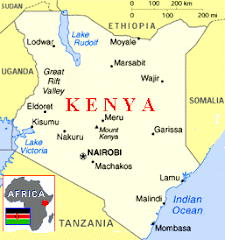In May this year the California Supreme Court ruled that Proposition 22, which affirmed opposite-sex marriage, was unconstitutional. To date, only Massachusetts in the United States allows same-sex marriage. So what are the Canadian lessons for California and other states that will, in time, face a debate about the redefinition of marriage?
Firstly, where gay rights triumph, new rights battl es begin. One example is over the rights of children. Another is over polygamy, which soon involves freedom of religion. A third battle is over freedom of speech -- the right to publicly advocate traditional marriage can be challenged as homophobic. Secondly, where marriage is not understood as an institution, it cannot be defended adequately in the public square. In short, if North Americans are not educated on what marriage is, they will not, in the long term, support an exclusive definition, one that will appear discriminatory even if this is not the case or the intention.
es begin. One example is over the rights of children. Another is over polygamy, which soon involves freedom of religion. A third battle is over freedom of speech -- the right to publicly advocate traditional marriage can be challenged as homophobic. Secondly, where marriage is not understood as an institution, it cannot be defended adequately in the public square. In short, if North Americans are not educated on what marriage is, they will not, in the long term, support an exclusive definition, one that will appear discriminatory even if this is not the case or the intention.
Marriage as an institution is meant to constrain human behaviour, not liberate or grant rights. Put differently, where individuals have both rights and responsibilities, marriage falls more in the latter category; it is a responsibility, not a right. In his book, The Future of Marriage, American family scholar David Blankenhorn says that "a social institution creates and maintains rules, including rules for who is, and is not, a part of the institution… [A] social institution creates public meaning… [Such institutions] exist to solve basic problems and meet core needs.”
Blankenhorn goes on to say this: “In nearly all human societies marriage is socially approved sexual intercourse between a woman and a man, conceived both as a personal relationship and as an institution, primarily such that any children resulting from the union are—and are understood by the society to be—emotionally, morally, practically, and legally affiliated with both of the parents.”
On August 16, 2008, presidential hopeful Barack Obama told a California church audience that marriage was between one man and one woman. California is not a conservative state, yet polls there show support for traditional marriage. But the law also acts as a kind of teacher, which means that, in time, Californians could vote differently, given the recent Supreme Court ruling.
Since same-sex marriage became law, Canadians have been quiet. This is largely self-censoring, led by the real possibility that speaking out will result in public maligning, or worse. California is at a crossroads that Canada has already passed. But both north and south of the border, we need to begin to learn about marriage as an institution, and let those lessons lead public policy in the future.
Andrea Mrozek and Peter Jon Mitchell are staff members of the Institute of Marriage and the Family Canada, a social policy think thank based in Ottawa. This article first appeared in the IMFC's bulletin eReview.




1 comment:
I have linked to your post from Yes on Prop 8 with non-Californian's help, prayer and fasting
Where I am humbly asking people who know somebody in California to give them a call and let them know how important this issue is.
Although, ostensibly, Proposition 8 has no effect beyond California’s borders, activists on both sides of the marriage debate say whatever happens in November will have profound ramifications on the rest of the country.
Post a Comment